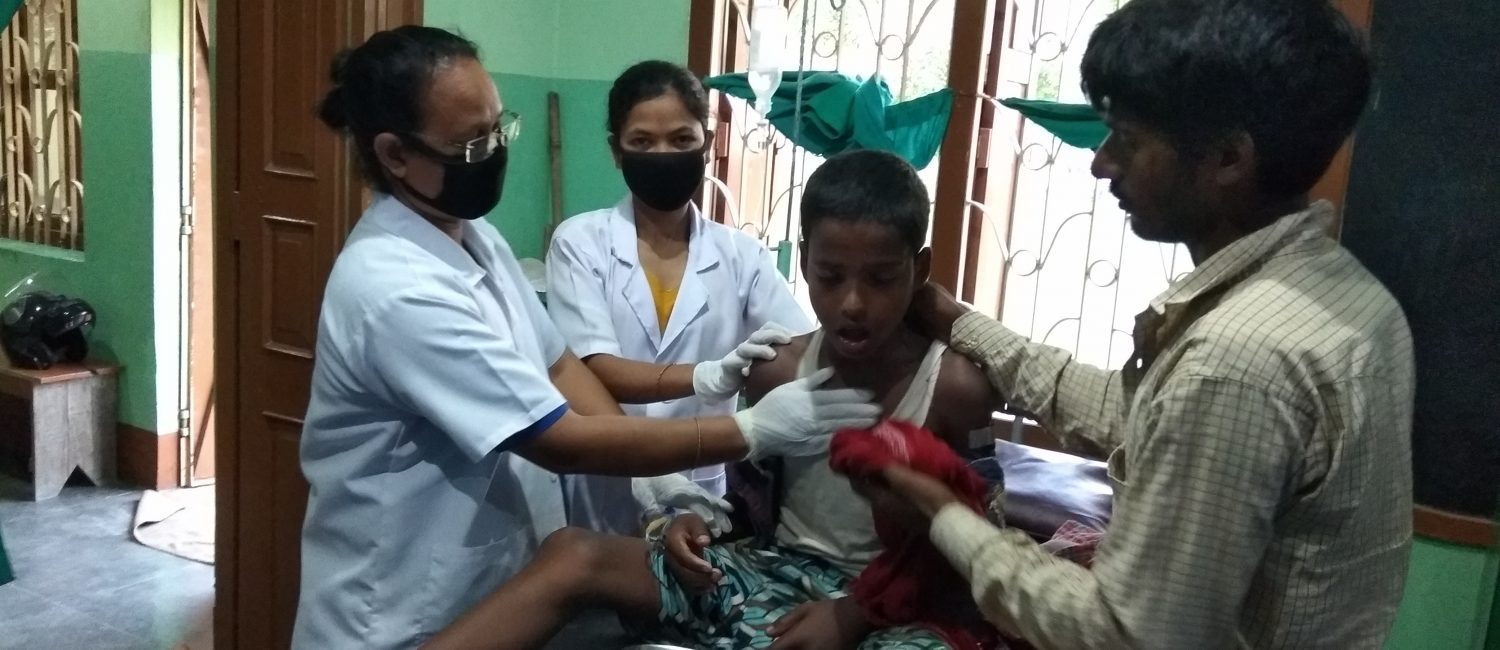
Jyothi Bhavan Kanti, Muzaffarpur in North Bihar began in 1993 among the Hindus and Dalits group (Low caste) of people with many challenges. The pioneers had to face all type of obstacles and hardships, but passion for the mission and option for the poor kept the sisters from returning back to the established Convent. The sisters started non-formal education and animation program in nearby villages and later moved on to far out villages. The aim was to empower, educate women and children in particular and thus to bring about overall community development. Later on knowing and assessing the needs of the people the sisters started a dispensary for snakebite cases which is so much in demand up to now.
In Kanti, 90% of people consist of rural population. The dalits are the major vulnerable section of the society and the most oppressed community. The majority of the people in the area live in very poor and unhygienic living conditions. They are also the victims of superstitious beliefs, unfavourable customs and practices. Most families are landless labourers and are indebted to private money lenders who exploit them for their own interest. The women are the worst victims of exploitation and injustice in their own families and society as they have no right under Parda (veil) system. Child marriage is another cause of concern. The health problems are linked with poverty, illiteracy, ignorance, poor nutrition and other socioeconomic, cultural and political problems. Even the basic health programmes and infrastructure for hospitals remain a dream.
Our health centre caters to the needs of the snakebite patients and the Sisters are occupied round the clock with these patients. 95% of them are bitten by the poisonous snakes and others are bitten by other venomous creatures like centipedes, scorpion, spider, wasp, etc. They are prone to snake bites in the fields as well in their own homes because live in the huts made of bamboos and grass having mud floor and this type of houses attracts the venomous creatures easily especially during summer and rainy seasons. The Sisters treat them with snake stone (it absorbs the poison) which is made of herbal medicines. Serious cases are treated with anti-venom injection and one injection costs Rs. 1500 ($ 20-25). At times a patient needs about 8 to 13 injections which the poor are not able to pay the cost and we too do not have other sources to help the poor. Every year we have 6000 plus snake bite cases including men, women and children. During summer and rainy season we have maximum number of cases and less in winter months.
Due to the ignorance and superstitious belief most of the patients go to Ojha (Witch craft) for treatment and they either die or in a serious condition come to our health centre. These patients are mostly from remote areas and they travel 80 to 90 kilo meters and some of them die on the way. Because of the poverty many patients especially those who are treated with snake anti-venom injections are unable to pay the full amount and run away without paying. For the better service of these poor people we require more snake stones and anti-venom injections. Two sisters and two nurses work on round the clock duty to extend our service to the people of this area and give life to the poor.
GOALS: To give health and life to snakebite patients by treating them with snake stones and anti-venom injection.
ACTIVITIES:
Give first aid to the snake bite patients; Give more facilities for people who come for snake bite treatment and to save them from untimely death; Reach out to the general patients also with proper treatment and to expand our mission among the poor and To keep their houses and surrounding clean to keep away the snakes and other venomous creature
BENEFICIARIES: over 6000 snakebite patients